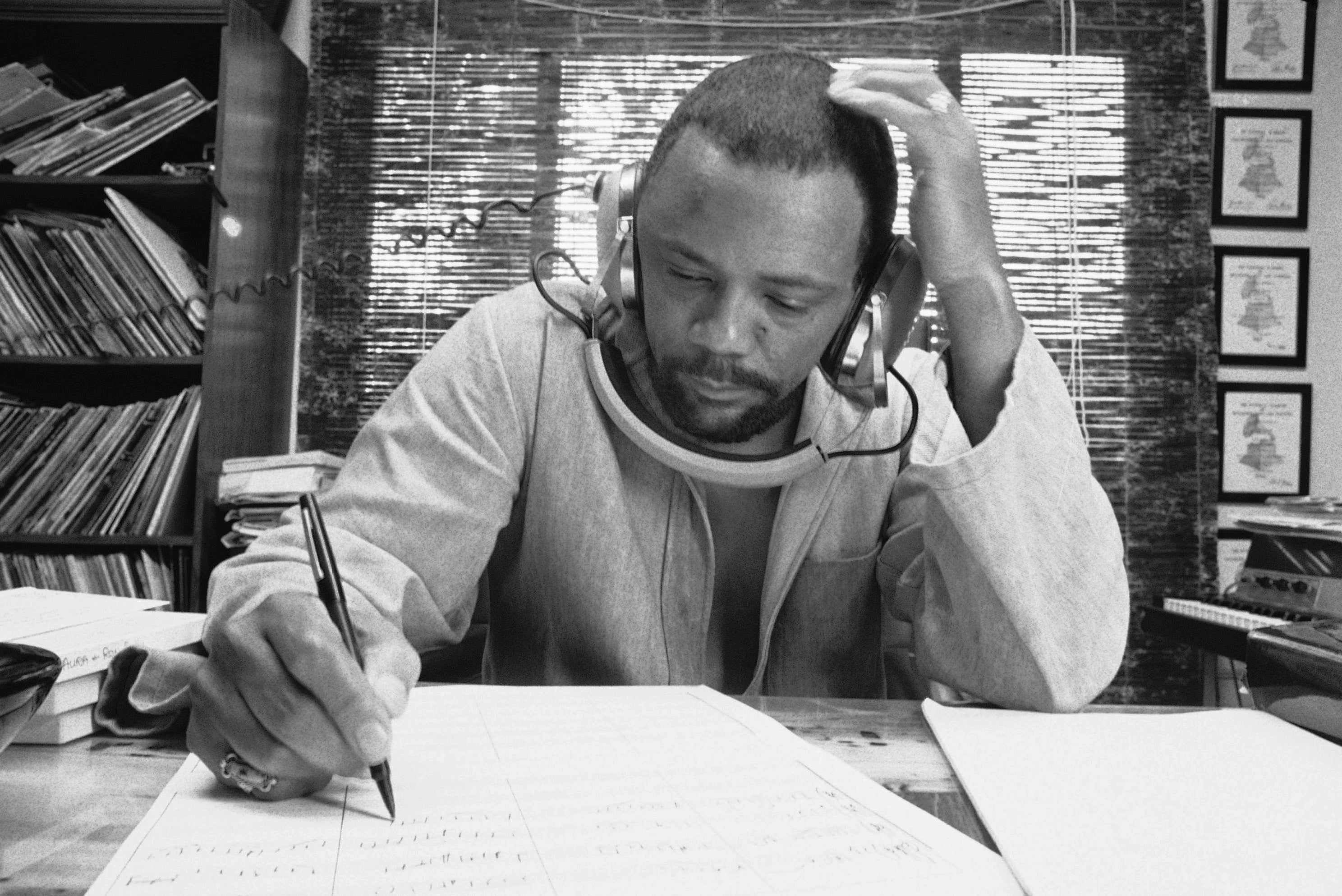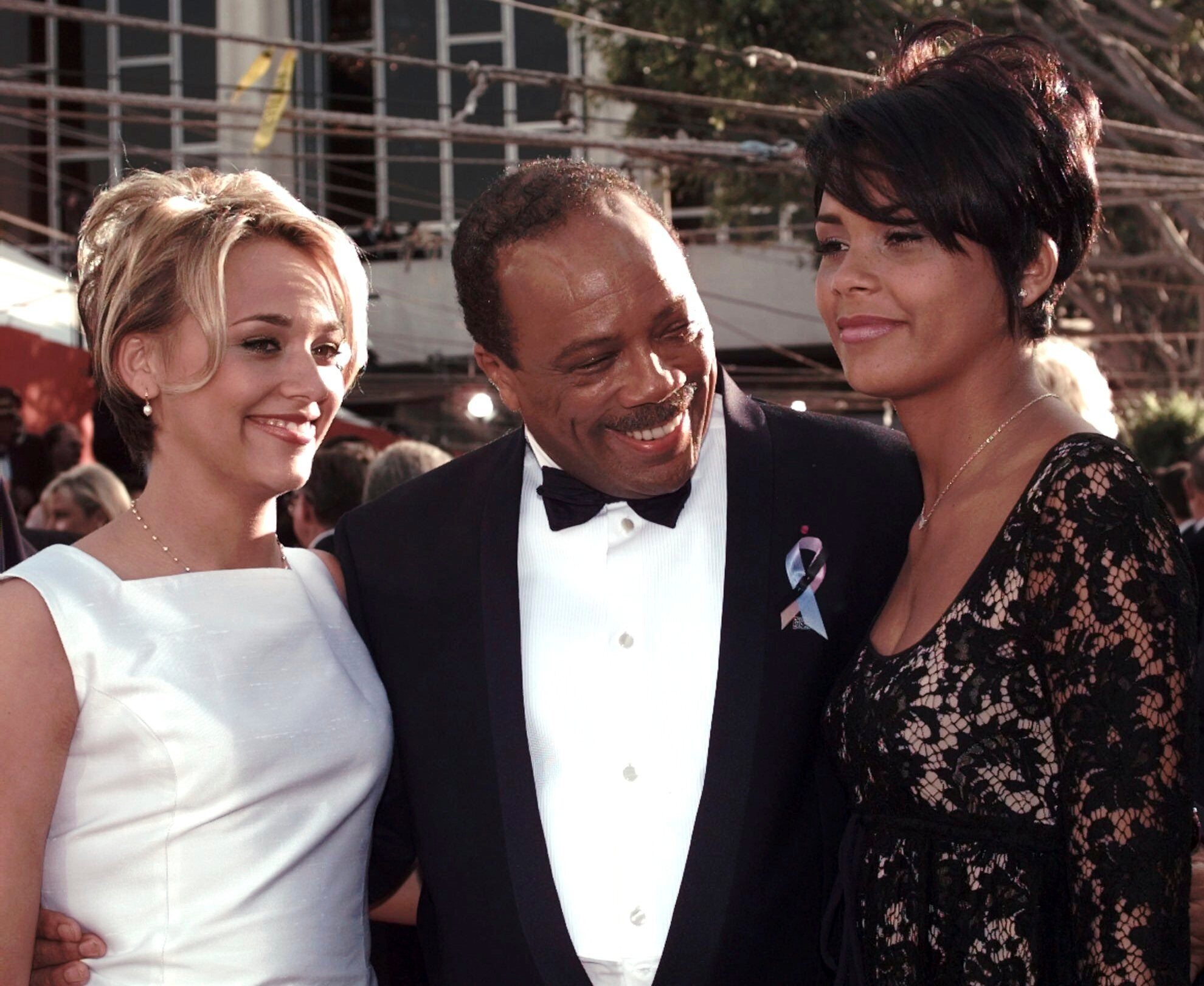Quincy Jones was the ultimate renaissance man, achieving global chart-dominating hits with pop icon Michael Jackson, producing and scoring Oscar-winning films, and performing with many of the greatest jazz artists of all time.
In a career spanning more than seven decades he achieved a number of “firsts”, paving the way for generations of artists and shaping the future of pop music. After Beyoncé and Jay-Z, he was the most-nominated artist in Grammys history, winning a total of 28 awards.
He was nominated for Album of the Year five times, winning twice: for Jackson’s Thriller in 1984 and for his own record, Back on the Block, in 1989.
When he advanced to the position of vice president at Mercury Records in 1961, he became the first African-American to achieve this high a post at a major music label. Three years later, he became the first to score a major motion picture, Sidney Lumet’s The Pawnbroker, having dreamt of composing for movies since he was 15 years old.
“But they didn’t use brothers,” he told GQ in a 2018 interview, recalling one of his first Hollywood meetings, when the writer Truman Capote allegedly walked in, saw him, and walked out again.
“And he went back into the other room and said, ‘I didn’t know Quincy Jones was a N****.’” Jones recalled.
“Truman Capote, that motherf***er, he called [director] Richard Brooks up on [1967 neo-noir crime film] In Cold Blood and said, ‘Richard, I don’t understand why you’ve got a N**** doing the music for a film with no people of color in it.’ And Richard Brooks said, ‘F*** you, he’s doing the music.’ Richard was tough.” He said Capote eventually apologised – crying over the phone – after he saw the film and Jones received an Oscar nomination.

He and Sinatra had the first song played on the moon, when astronaut Buzz Aldrin played their 1964 version of “Fly Me to the Moon” on a portable cassette player as he stepped onto the lunar surface, in 1969. Two years earlier, he and songwriting partner Bob Russell became the first Black Americans to be nominated for Best Original Song at the Oscars, for their track “The Eyes of Love” from Robert Wagner’s romantic drama Banning.
Jones was the first African-American to be nominated twice in one year, as he was also up for Best Original Score, for In Cold Blood. He was also the first African-American to be named as musical director and conductor of the Oscars, in 1971, and the first Black artist to receive the AMPAS Jean Hersholt Humanitarian Award in 1995.
Enjoy unlimited access to 100 million ad-free songs and podcasts with Amazon Music
Sign up now for a 4 month free trial (3 months for non-Prime members)
Enjoy unlimited access to 100 million ad-free songs and podcasts with Amazon Music
Sign up now for a 4 month free trial (3 months for non-Prime members)
As one of the first Black executives in the upper echelons of entertainment, producing Jackson’s hits including “Thriller”, “Bad” and “Beat It”, Jones helped steer Jackson to become the first major Black artist to have a video played on MTV, while their collaboration on Thriller led to it becoming the biggest selling album of all time.
He also discovered and helped nurture the careers of Will Smith and LL Cool J by executive-producing series The Fresh Prince of Bel-Air and In the House, respectively.

“Yeah. Which means ‘only,’” he told GQ when asked about these many “firsts”. Was he conscious of this? “Yeah. Of course.”
Jones’s publicist Arnold Robinson said that Jones died on Sunday 3 November surrounded by his family at his home in the Bel Air area of Los Angeles. No cause of death was given.
“Tonight, with full but broken hearts, we must share the news of our father and brother Quincy Jones’s passing,” the family said in a statement. “And although this is an incredible loss for our family, we celebrate the great life that he lived and know there will never be another like him.”

